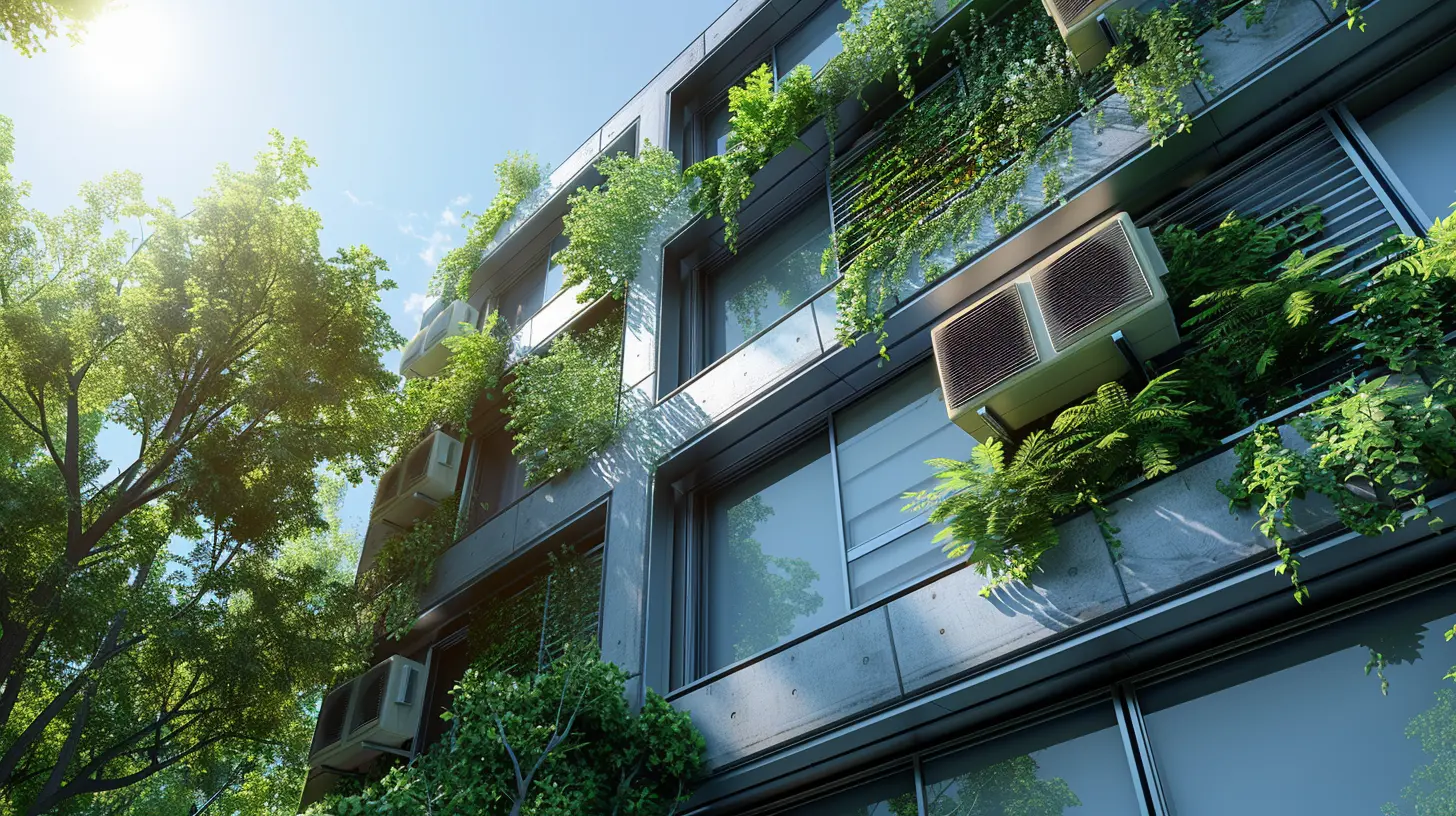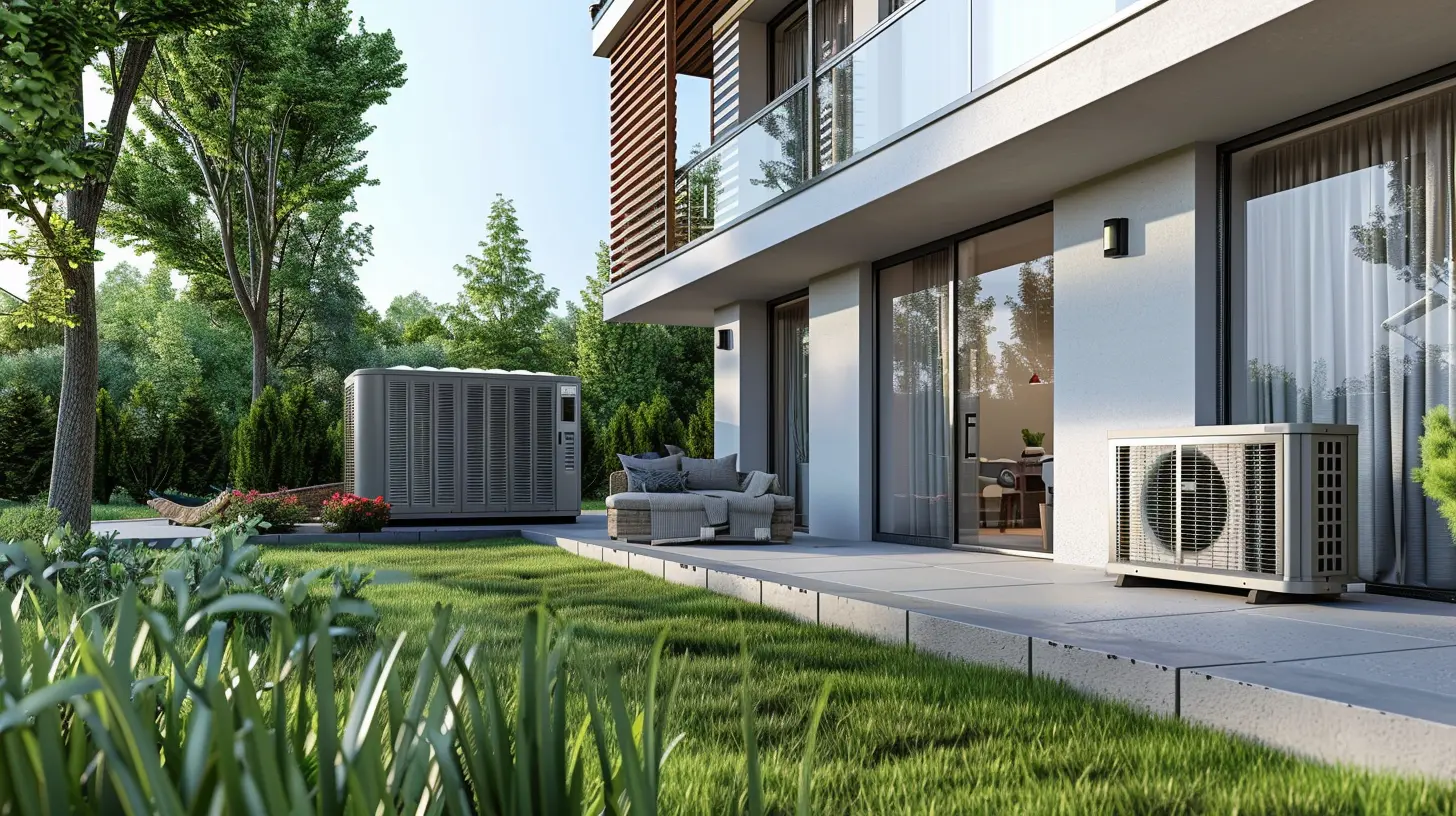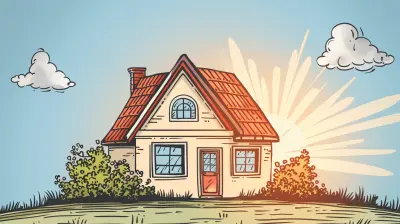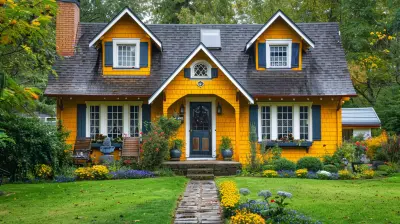Choosing the Right HVAC System for a Truly Sustainable Home
15 September 2025
Picture this: You’re building your dream home or giving your current one a much-needed efficiency upgrade. You’ve got the solar panels, the double-glazed windows, and the smart thermostat. But there’s one big puzzle piece that can make or break your sustainable living goals — your HVAC system.
Heating, ventilation, and air conditioning (HVAC) systems are silently responsible for keeping our homes comfy year-round. But they also account for a big chunk of a home’s energy use — sometimes up to 50%. If you’re serious about sustainability, choosing the right HVAC system isn’t optional; it’s essential.
Let's break down how you can pick the right HVAC system that’s not only good for the planet but also for your wallet.
Why HVAC Systems Matter in Sustainable Homes
First things first — what’s so special about HVAC systems in the context of sustainability?Here’s the deal: Traditional HVAC systems are energy hogs. They often use non-renewable resources, release greenhouse gases, and cost a small fortune in electricity bills. On the flip side, modern systems designed with sustainability in mind are built to minimize energy waste and maximize efficiency. They use greener technologies and smarter controls, cutting your carbon footprint down to size.
So, when we're talking about sustainable homes, HVAC isn’t just another appliance — it’s a heavy-lifting energy system that directly affects your home's environmental impact.
What Makes an HVAC System 'Sustainable'?
Before we dive into types and options, let’s clear the air on what qualifies an HVAC system as sustainable.A truly sustainable HVAC system should:
- Use energy efficiently (high SEER, EER, or HSPF ratings).
- Minimize emissions and environmental harm.
- Be made from durable, recyclable materials.
- Integrate well with renewable energy sources (like solar or geothermal).
- Have smart controls that reduce unnecessary usage.
- Require minimal maintenance and last for years.
Basically, you want something that works smarter, not harder — and doesn’t tap-dance on your utility bill every month.
Factors to Consider When Choosing a Sustainable HVAC System
Before you throw your money at the fanciest-sounding eco-friendly option, slow down and consider these crucial factors:1. Climate and Location
Where you live plays a huge role in your HVAC choice. Geothermal might be great for Michigan, but not so practical in Phoenix. If you get extreme winters or brutal summers, that’s going to affect your system’s workload — and the type best suited for your needs.2. House Size and Insulation
A well-insulated 1,200-square-foot bungalow won’t need the same system as a drafty 4,000-square-foot colonial. Size your system correctly to avoid overworking it or wasting energy. An undersized unit will struggle, while an oversized one will cycle on and off inefficiently.3. Budget (Installation vs. Lifetime Cost)
This is where it gets tricky. Some of the most efficient systems can cost more upfront but save you a ton over time. So don't just ask, "How much does it cost?" Ask: "How much will this system save me over 15-20 years?"4. Integration with Renewable Energy
Planning on installing solar panels or already have them in place? Choose an HVAC system that can sync with your green energy setup to maximize efficiency and minimize reliance on the grid.5. Maintenance and Durability
A sustainable home is also a low-maintenance one. Look for systems with a strong warranty, a reputation for reliability, and easy maintenance. No one wants a so-called “sustainable system” that breaks every three months.
Top Sustainable HVAC Options to Consider
Ready for some real-talk about the options on the table? Let’s go through the major players in the sustainable HVAC game and what they bring to the table.1. Heat Pumps – The MVP of Green HVAC
If there’s a juggernaut in the sustainability world, it’s the heat pump. These systems transfer heat rather than generate it, making them super energy-efficient.There are two main types:
- Air Source Heat Pumps (ASHPs): Extract heat from the outside air even when it's cold. Great for milder climates.
- Ground Source/Geothermal Heat Pumps: Pull heat from the ground, where the temperature stays relatively stable year-round. These are more expensive upfront but incredibly efficient.
💡 Bonus: Heat pumps work for both heating and cooling, which means one system handles it all.
2. Ductless Mini-Split Systems – Customize Your Comfort
If your home doesn’t already have ductwork, mini-splits are a streamlined solution. They use individual wall-mounted units for each room, allowing for zoned climate control. Why heat or cool the whole house when you’re only in one room?They’re energy-efficient, easy to install, and don’t lose energy through ducts (a common problem in traditional systems).
3. High-Efficiency Furnaces and AC Units
Still leaning toward traditional systems? No shame there — just go for models with high efficiency ratings:- Look for ENERGY STAR certifications.
- Furnaces with an AFUE (Annual Fuel Utilization Efficiency) over 90% are considered high-efficiency.
- AC units with SEER (Seasonal Energy Efficiency Ratio) ratings over 16 are solid performers.
You won’t get the same efficiency as a heat pump, but it’s a major step up from older models.
4. Smart HVAC Systems
Want to truly put your HVAC on autopilot? Smart systems, integrated with learning thermostats, sensors, and remote access, ensure that energy use is minimized when you’re out or asleep.Even better, many systems offer performance tracking, predictive maintenance alerts, and learning algorithms that adapt to your lifestyle.
Think of it as cruise control for your comfort — smart, smooth, and hands-free.
Eco-Friendly Features Worth the Extra Investment
You’ve got your shortlist of options, but your system is only as good as its features. Here are a few add-ons that can take your sustainability game up a notch:Solar-Powered HVAC
Some HVAC systems are designed to run entirely on solar energy. If your roof is already generating clean power, why not use it to keep your home comfy?Zoned Heating and Cooling
Why heat the entire house when you only use the living room and bedroom during the day? Zoned systems let you direct energy exactly where you need it.Energy Recovery Ventilators (ERVs)
ERVs bring in fresh air without wasting the energy it took to heat or cool your home. They’re like efficient little lungs for your house — breathing in fresh air while keeping the comfort inside.Variable-Speed Motors
Systems with variable-speed technology don’t just switch on or off — they adjust speed based on current conditions, using only as much energy as necessary. It's like dimming your lights rather than flipping them off and on.Installation and Maintenance: What to Know
Even the best HVAC system will underperform if it’s poorly installed or neglected. That’s like putting a Ferrari engine in a golf cart — a total waste.Here’s what to keep in mind:
- Hire a certified technician familiar with high-efficiency systems.
- Regular maintenance (like changing filters, checking refrigerant levels, and cleaning coils) keeps things running smoothly.
- Seal air ducts wherever possible. Leaky ducts can reduce efficiency by up to 30%!
Cost vs. Value: Is It Worth It?
Let’s do some quick math here. Installing a high-efficiency heat pump might cost $3,000 to $10,000 more than a standard system. But if it cuts your energy bills in half, you could save $1,000+ every year.After 10 years? That’s $10,000.
And let’s not even get started on the resale value. A sustainable HVAC system can be a huge selling point when it’s time to move on.
Final Thoughts: Your Sustainable HVAC Game Plan
Choosing the right HVAC system for a sustainable home isn’t just about going green — it’s about being smart, practical, and future-ready.Here’s a quick checklist to help you out:
✅ Evaluate your climate and home size
✅ Compare efficiency ratings (SEER, AFUE, etc.)
✅ Consider heat pumps (seriously, they’re game-changers)
✅ Look into smart and zoned systems
✅ Integrate with renewable energy if possible
✅ Focus on long-term savings, not just upfront costs
✅ Hire the right installer and stay on top of maintenance
You don’t have to go it alone. Talk to HVAC professionals who specialize in sustainable systems, and always ask a ton of questions. Because when it comes to your comfort, your energy bills, and your impact on the planet, the right HVAC choice can make all the difference.
So yes — your HVAC system might just be the unsung hero of your sustainable home. Choose wisely.
all images in this post were generated using AI tools
Category:
Green HomesAuthor:

Lydia Hodge
Discussion
rate this article
1 comments
Maren Cruz
Investing in an energy-efficient HVAC system is essential for sustainable living. Consider your home’s unique needs, prioritize renewable energy options, and ensure proper installation to maximize comfort and minimize environmental impact.
September 18, 2025 at 2:52 AM

Lydia Hodge
Thank you for your insightful comment! Prioritizing energy efficiency and renewable options is indeed crucial for sustainable living. Proper installation can make all the difference in maximizing both comfort and environmental benefits.


